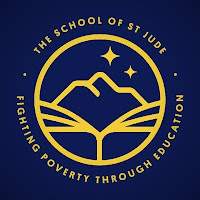At SimbaNET (T) Limited, we believe that strong connectivity builds stronger communities. As part of The Wananchi Group, we’ve grown into one of Eastern Africa’s most trusted Internet, Data, and Communication solution providers — connecting businesses, people, and opportunities every single day.
We’re now looking for a NOC Specialist to join our dynamic technical team in Dar es Salaam. If you’re passionate about networks, thrive in fast-paced environments, and love solving complex problems, this could be your next big step.
What This Role Involves
You’ll play a key role in keeping our network running smoothly and our customers connected. Your main responsibilities will include:
- Configuring customer services with the right QoS and policies across all systems and devices.
- Taking ownership of technical escalations and resolving service-related issues quickly and efficiently.
- Preparing detailed Root Cause Analyses (RCA) and Reason for Outage (RFO) reports when incidents occur.
- Monitoring and managing performance across our core, distribution, and access networks — ensuring reliability and uptime of at least 99.9%.
- Safeguarding network infrastructure against unauthorised access and misuse.
- Planning, designing, and implementing network projects that support both customer needs and company goals.
- Maintaining up-to-date network diagrams and operational documentation for smooth coordination.
What We’re Looking For
We’re looking for someone who combines technical depth with problem-solving energy — someone who doesn’t just fix issues but anticipates them.
- Minimum 3 years’ experience in network operations or a related technical role.
- Strong understanding of routing protocols (IS-IS, BGP, etc.) and MPLS networks.
- Hands-on experience with Core, Distribution, and Campus Switching configurations.
- Working knowledge of Power/UPS scaling and optimisation.
- Familiar with VSAT installations and configurations.
- Skilled in LAN policy design, network security, and performance monitoring.
- Knowledge of fibre network design, restoration, and best practices.
- Analytical, organised, and confident in documenting and reporting technical findings.
Education & Certifications
- A Bachelor’s degree in Telecommunications, Electrical, or Computer Engineering.
- Professional certifications are an added advantage (CCNA/CCNP, JNCIA/JNCIS-ISP, Network+, SDH, or equivalent).
Why You’ll Love Working With Us
At SimbaNET, you’ll join a close-knit team that values collaboration, innovation, and personal growth. We believe in empowering our people to learn, take initiative, and make a real impact every day. You’ll work with experienced professionals, cutting-edge technology, and a company that truly values reliability and excellence.
Ready to Apply?
If this sounds like the kind of challenge you’ve been waiting for, we’d love to hear from you.
Send your application, CV, and supporting documents to:
recruitment@simbanet.co.tz
Deadline: 10th October 2025



